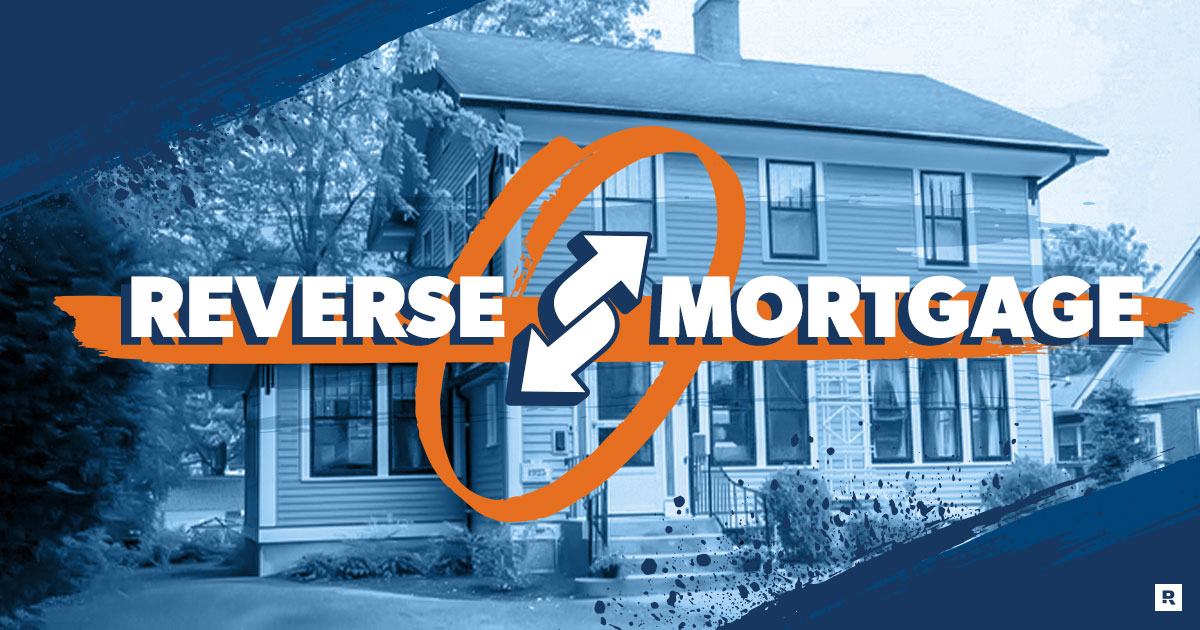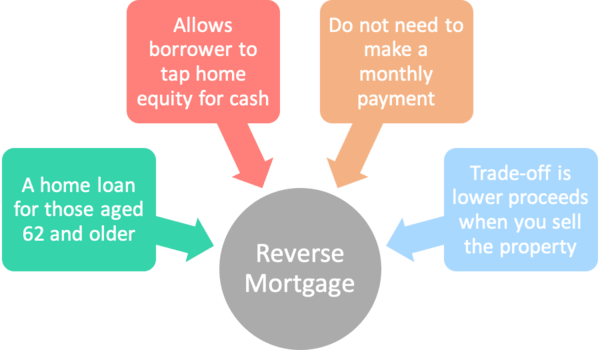Is It the Right Time to Purchase Reverse Mortgage? Here’s What to Consider
Is It the Right Time to Purchase Reverse Mortgage? Here’s What to Consider
Blog Article
Empower Your Retirement: The Smart Way to Purchase a Reverse Home Mortgage
As retirement techniques, lots of individuals seek efficient approaches to enhance their financial freedom and health. Among these techniques, a reverse home loan arises as a feasible option for house owners aged 62 and older, permitting them to tap into their home equity without the requirement of monthly payments.
Recognizing Reverse Mortgages
Understanding reverse home mortgages can be essential for property owners looking for economic adaptability in retirement. A reverse home loan is an economic product that permits eligible house owners, commonly aged 62 and older, to transform a section of their home equity right into cash money. Unlike traditional mortgages, where borrowers make monthly payments to a lending institution, reverse mortgages enable homeowners to obtain settlements or a swelling sum while maintaining ownership of their building.
The quantity offered through a reverse mortgage depends on numerous aspects, including the homeowner's age, the home's value, and present rates of interest. Importantly, the lending does not have to be repaid until the home owner offers the home, vacates, or dies.
It is necessary for prospective borrowers to recognize the ramifications of this economic product, consisting of the effect on estate inheritance, tax factors to consider, and ongoing duties associated with residential property maintenance, tax obligations, and insurance policy. Furthermore, counseling sessions with licensed experts are often needed to make sure that borrowers completely comprehend the terms and problems of the lending. Generally, a complete understanding of reverse mortgages can equip homeowners to make educated choices regarding their economic future in retirement.
Advantages of a Reverse Home Mortgage
A reverse mortgage provides numerous compelling benefits for eligible home owners, specifically those in retirement. This economic device allows senior citizens to transform a section of their home equity into cash, supplying essential funds without the need for regular monthly home mortgage payments. The cash acquired can be made use of for numerous purposes, such as covering medical costs, making home renovations, or supplementing retired life income, thus improving general monetary versatility.
One substantial advantage of a reverse home mortgage is that it does not call for settlement until the property owner leaves, sells the home, or passes away - purchase reverse mortgage. This function allows retired people to preserve their lifestyle and meet unexpected costs without the burden of monthly repayments. In addition, the funds gotten are typically tax-free, allowing homeowners to utilize their cash without worry of tax implications
Furthermore, a reverse mortgage can supply assurance, recognizing that it can offer as a monetary safeguard throughout challenging times. House owners additionally maintain ownership of their homes, ensuring they can proceed staying in an acquainted atmosphere. Ultimately, a reverse mortgage can be a strategic financial source, equipping retirees to manage their funds properly while appreciating their golden years.
The Application Refine
Browsing the application procedure for a reverse mortgage is an essential action for property owners considering this monetary choice. The initial stage involves reviewing eligibility, which typically calls for the house owner to be a minimum of 62 years of ages, own the building outright or have a reduced mortgage equilibrium, and occupy the home as their main house.
As soon as eligibility is validated, property owners must go through a therapy session with a HUD-approved counselor. This session makes certain that they completely recognize the implications of a reverse home mortgage, consisting of the obligations entailed. purchase reverse mortgage. After completing therapy, candidates can proceed to gather required documents, including evidence of earnings, possessions, and the home's worth
The following step requires sending an application to a lender, who will examine the financial and property certifications. An assessment of the home will likewise be carried out to establish its market value. If authorized, the loan provider will certainly offer car loan terms, which need to be reviewed thoroughly.
Upon approval, the closing procedure adheres to, where final files are authorized, and funds are paid out. Recognizing each phase of this application process can considerably improve the homeowner's confidence and decision-making regarding reverse home loans.

Trick Factors To Consider Prior To Acquiring
Getting a reverse home mortgage is a significant monetary decision that calls for cautious consideration of several vital variables. Recognizing your qualification is important. Property owners should go to least 62 years old, and the home has to be their key home. Assessing your financial demands and goals is equally vital; figure out whether a reverse mortgage straightens with your long-lasting strategies.

Additionally, examine the effect on your existing way of living. A reverse home mortgage can influence your eligibility for sure government advantages, such as Medicaid. Ultimately, look for specialist advice. Consulting with a financial consultant or a housing therapist can offer useful understandings customized to your specific situations. By completely evaluating these considerations, you can make an extra educated choice about whether a reverse home mortgage is the appropriate financial method for your retired important source life.
Taking advantage of Your Funds
When you have secured a reverse home loan, successfully handling the funds ends up being a concern. The versatility of a reverse mortgage enables home owners to use the funds in different means, yet calculated planning is essential to maximize their benefits.
One key strategy is to create a budget that details your financial objectives and monthly expenditures. By identifying essential expenses such as medical care, real estate tax, and home maintenance, you can designate funds accordingly to make sure long-term sustainability. Additionally, take into consideration utilizing a portion of the funds for financial investments that can generate income or appreciate with time, such as dividend-paying supplies or mutual funds.
An additional essential facet is to maintain a reserve. Alloting a get from your reverse home loan can aid cover unexpected costs, supplying peace of mind and monetary stability. Seek advice from with an economic expert to explore possible tax obligation effects and just how to incorporate reverse mortgage funds into your overall retired life approach.
Ultimately, prudent management of reverse home mortgage funds can enhance your financial safety, enabling you to appreciate your retired life years without the stress and anxiety of economic uncertainty. Cautious planning and informed decision-making will guarantee that your funds work successfully for you.
Final Thought
Finally, a reverse home mortgage offers a feasible economic method for elders looking for to improve their retirement experience. By converting home equity right into accessible funds, individuals can deal with crucial expenses and secure added funds without incurring month-to-month payments. Cautious factor to consider of the associated terms and effects is crucial to make the most news of benefits. Eventually, leveraging this monetary device can promote better independence and improve general lifestyle throughout retirement years.
Understanding reverse home loans can be critical for property owners looking for monetary adaptability in retirement. A reverse home loan is an economic product that enables qualified property owners, commonly aged 62 and older, to convert a part of their home equity right into cash money. Unlike conventional home mortgages, where borrowers make monthly repayments to a lender, reverse mortgages allow home owners to receive repayments or a swelling amount while retaining ownership of their property.
Overall, a complete understanding of reverse home mortgages can encourage home owners to make enlightened choices concerning their financial future in retirement.
Consult with a financial advisor to explore feasible tax obligation effects and exactly how to integrate reverse home mortgage funds right into your general retirement technique.
Report this page